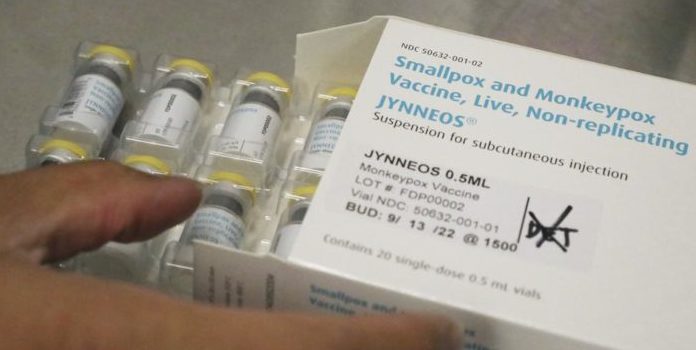(Molly Bruns, Headline USA) As companies continue to manufacture COVID vaccinations and boosters, the Food and Drug Administration is decreasing the difficulty of testing measures by no longer requiring animal testing before human drug trials.
The Centers for Disease Control and Prevention recently announced that they are launching an investigation into the most recent Pfizer COVID booster after an initial investigation into the drug found the shot would significantly increase the potential for a stroke for those 65 and older.
According to the Daily Wire, the vaccines were quickly authorized by the FDA; however, an investigation into the matter discovered the issue after they were released into the public.
“CDC’s Vaccine Safety Datalink (VSD), a near real-time surveillance system, met the statistical criteria to prompt additional investigation into whether there was a safety concern for ischemic stroke in people ages 65 and older who received the Pfizer-BioNTech COVID-19 Vaccine, Bivalent,” the CDC said in a statement.
Scientific journals recently started publishing research concerning the mortality rates and side effects of the COVID vaccine, with one study from Thailand indicating that nearly a third of young people who received the vaccine suddenly had uncharacteristic heart problems.
Another study from Switzerland speculates that 3% of all vaccinated people will likely incur heart damage.
Several studies suggest fertility issues and impaired mobility are also potential side effects of either the Pfizer or Moderna vaccines and their accompanying boosters.
Despite the vocal concern from around the world, the FDA is working to lower standards of drug testing by removing animal testing.
Animal rights groups welcome the legislation, which President Joe Biden signed in December. It is an unprecedented step, as animal testing was a requirement within the FDA for 80 years of drug safety regulation.
Since 1938, the FDA required the promotion of a drug to human trials after either animal testing.
Animal rights groups argue that initial trials should instead rely on computer modeling, using “organ chips” and other recently discovered methods.
Many toxologists within the FDA reportedly prefer animal testing, which allows for full examination of damage after the animal passes. The administration has not made a statement regarding what changes they will make with regards to the new legislation.

